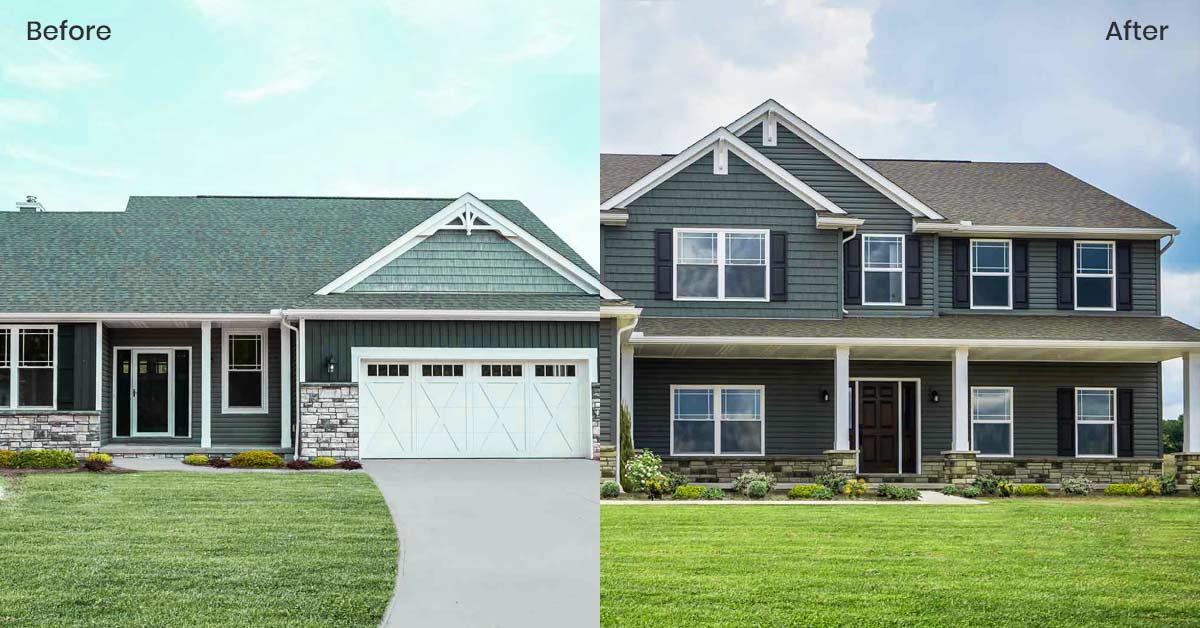
Home extensions offer the best opportunity to beautify your home, whether you're increasing your circle of relatives in your home, adding a home office, or adding an expensive new living area. However, the process can appear daunting, among a maze of making plans, budgeting, and construction. With cautious practice and a clear understanding of the steps involved, you may make sure of a smooth and successful home extension assignment. In this blog by Deejos, we’ll provide practical tips to guide you through every segment of your home extension, from initial planning to final touches.
1. Define Your Objectives
Before diving into any domestic extension venture, it’s vital to outline your goals virtually. What are your main plans? Are you trying to add extra bedrooms, create a bigger kitchen, or construct a home workplace? Your goals will dictate the layout, price range, and timeline of your task.
Make a list of your must-haves and nice-to-haves. Prioritizing these will help you make decisions and stay focused throughout the project.
2. Set a Realistic Budget
Budgeting is an important issue of any home extension. A clean price range will assist you avoid overspending and maintain the mission on the right track. Start by getting estimates from our best architects in Chennai and suppliers to understand the charges concerned.
Include a contingency fund of about 10-15% of the whole finances for emergency fees. This will provide a buffer for any unexpected troubles that may arise for the duration of project.
3. Choose the Right Professionals
Selecting the proper specialists can make or wreck your house extension assignment. Consider hiring the best architecture firms in Chennai to design your extension and a contractor to control the development. If needed, discuss with a structural engineer to ensure the extension is safe and complies with building codes.
Check the credentials and reviews of professionals. Request references from previous customers and evaluate their past projects to make certain they align with your expectations.
4. Obtain Necessary Permits
Home extensions frequently require permits and approvals from authorities of your area. Failure to stabilize the necessary permits can result in fines, delays, or even having to undo finished paintings.
Consult along with your contractor or architect to understand which permits are required. They can regularly deal with the permit application on your behalf, making sure of compliance with the rules.
5. Plan for Disruption
Home extensions may be disruptive, affecting your everyday routines. To minimize inconvenience, plan for transit preparations, which include relocating your main activities or putting in a temporary kitchen if the prevailing one is impacted.
Communicate along with your contractor properly the mission timeline and phases. Knowing what to expect will help you put together for disruptions and plan for this reason.
6. Focus on Design and Functionality
The design of your extension must now not simply meet aesthetic choices but also functional needs. Consider factors including natural ventilation, and how the new space will integrate with your existing home.
Work intently together with your architect to make sure the design maximizes area and functionality. They can offer precious insights into layout, materials to be used and design functions that improve your home's design and practicality.
7. Choose Quality Materials
The high-quality materials used in your private home extension will impact its sturdiness and look. Opt for unique and quality materials that are aesthetically appealing and durable.
Research materials and discuss with your contractor to pick alternatives that are inside your budget. Investing in these quality materials can save money ultimately by reducing the need for maintenance and replacements.
8. Monitor the Construction Process
Regularly tracking the development method ensures that work is progressing as planned and helps you trap any problems early. Schedule periodic visits to check on the development and deal with any issues together with your contractor.
Maintain open conversation together with your contractor all through the challenge. Address any problems or changes directly to keep away from delays and make certain the project stays on target.
9. Ensure Proper Inspections
Inspections are critical to make sure that the development works meet safety standards and comply with building codes. Arrange for inspections at various degrees of the venture, as required by local regulations.
Keep information on all inspections and approvals. These files can be useful for future reference and can be required if you decide to sell your house.
10. Plan for Finishing Touches
Once the principle creation is complete, you need to focus on the finishing touches that enhance the look and sense of your new space. This consists of painting, flooring, and putting in fixtures.
Choose finishes that complement the prevailing design of your property. Consider hiring an interior designer if you need help with deciding on colorings, furnishings, and decor that harmonize together with your new extension.
A good home extension calls for cautious planning, budgeting, and execution. By defining your goals, selecting the top architects in Chennai, and staying involved throughout the process, you can make sure that your extension complements your home and meets your desires. With those sensible guidelines, you’re good to create a stunning and practical new area that you and your circle of relatives can experience for years to come.